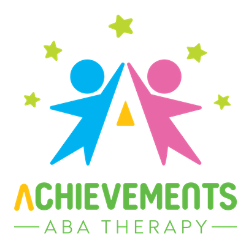What do BCBAs Do? Understanding the role of a BCBA
Introduction:
In the world of behavioral health, there’s a dedicated group making a big difference – Board Certified Behavior Analysts (BCBAs). They’re more than just professionals; they’re change-makers with a mission to transform lives. Let’s dive into their journey and understand what BCBA’s do and what their role entails.
Understanding Behavior Analysis:
Think of BCBAs as behavior experts on a mission. They use science to help people, especially kids, improve their behavior in a positive way. Following proven methods, they always keep track of information, assess situations, and analyze results to ensure things are on the right track. It’s like they have a special toolkit to guide and support positive changes in behavior, driven by a heartfelt mission to make a meaningful difference in children’s lives.
Assessment and Individualized Treatment Plans:
One of the primary responsibilities of a BCBA is conducting assessments to identify the factors influencing behavior. This involves gathering information through direct observations, interviews, and various assessment tools. Once the assessment is complete, the BCBA develops individualized treatment plans tailored to the unique needs of the individual.
Common assessments that are used to evaluate children with Autism and create treatment plans include:
– Verbal Behavior Milestones Assessment and Placement Program (VB-MAPP)
– Assessment of Basic Language and Learning Skills (ABLLS)
– Skillsstream
– Assessment of Functional Living Skills (AFLS)
– Vineland Adaptive Behavior Scales (Vineland-3 or VABS)
Every six months, clients are re-evaluated, and the treatment plan is updated to ensure that the clients are receiving optimal care.
Implementation of Evidence-Based Interventions
BCBAs employ various methods to improve the behavior and quality of life for children with autism. A key approach is Applied Behavior Analysis (ABA), which breaks down significant tasks into smaller, manageable steps, known for its effectiveness with autism. The model approved by insurance involves the Registered Behavior Technician (RBT) following the treatment plan crafted by the BCBA and being monitored through protocol modifications and supervision. They meticulously track data to organize and assess the progress of the children they are assisting in a clear and straightforward manner.
Data Analysis and Progress Monitoring:
Each week, a BCBA will check the client’s progress by reviewing the data. This helps them adjust strategies to keep interventions effective and in line with the client’s changing needs. During supervision sessions, the BCBA shows these changes to the RBT.
For instance, if the client is learning toilet training, the first step is introducing the child to the toilet in a positive way, like sitting on it for short periods without the expectation of using it.
Once that’s mastered, during protocal modification sessions, the BCBA moves to the next goal: Schedule Toilet Breaks. They set a regular schedule for toilet breaks, making sure the child has consistent chances to use the toilet.
Weekly Supervision
BCBAs and RBTs have a weekly meeting for supervision. This time allows them to discuss what’s going well and provide feedback to ensure that the strategies being used are effective. Regular check-ins like these are essential for maintaining open communication and fine-tuning the support provided to the individuals they are working with.
Parent Training
Parent training is such an important aspect of the BCBA role. When parents know what to do, it significantly benefits their child. They acquire practical skills to support t0heir child, enhancing progress. It’s not just about providing information; it involves teaching them useful techniques for everyday situations. During these sessions, BCBAs typically discuss what the RBT is working on with the client and guide parents on how to contribute to the ongoing progress. This teamwork between parents and behavior analysts is crucial, fostering a shared understanding and instilling confidence in parents to manage their child’s behavior effectively. The impact extends beyond the intervention, laying the foundation for continuous progress and growth.
Coordination of Care
Board Certified Behavior Analysts (BCBAs) collaborate closely with Speech-Language Pathologists (SLPs), Occupational Therapists (OTs), and School Psychologists to ensure a well-rounded approach to care. Together, they share insights and strategies to address behavior, communication, sensory, and cognitive challenges. By working as a team, they create tailored interventions that consider all aspects of an individual’s development. This collaborative effort aims to provide more effective support within educational settings, fostering the overall well-being and success of the individuals involved.
Advocacy and Education:
Beyond direct client interactions, BCBAs often engage in advocacy efforts to promote awareness and understanding of behavior analysis. They may also provide education and training to parents, teachers, and other professionals involved in the care of individuals with behavioral challenges.
Conclusion:
Becoming a BCBA is more than a career choice; it’s a commitment to empower and impact children’s lives. BCBAs use personalized, ,compassionate, evidence-based interventions for children with behavioral challenges. They champion kids, ignite postive changes and advocate for includsion. BCBAs play a pivotal role in shaping a future where every child can achieve their fullest potential. If you’re passionate about making a difference in children’s lives, a BCBA career offers a meaningful journey toward that mission.



















